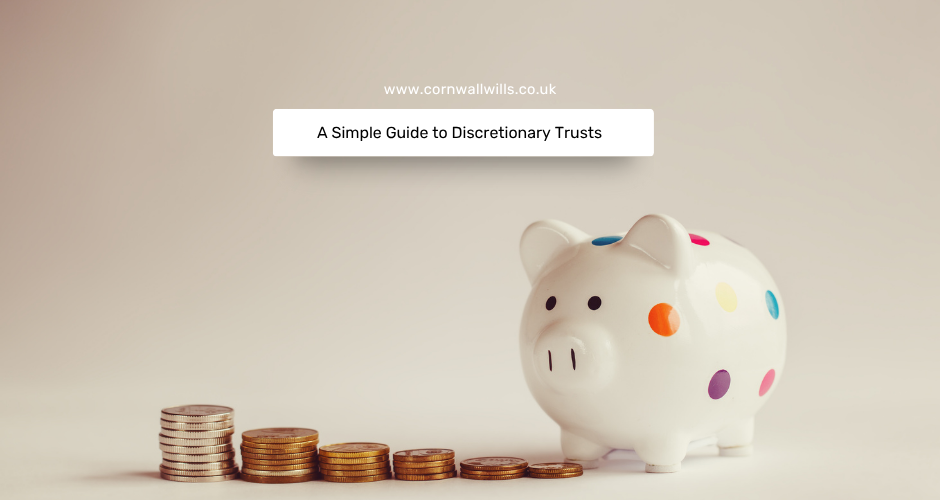A Simple Guide to Discretionary Trusts

Setting up a discretionary trust can be a great way to manage and protect your assets for future generations. Whether you're looking to pass on wealth to your children, safeguard assets from potential risks, or plan for inheritance tax (IHT), trusts can be a useful tool. However, they do come with tax rules that you need to be aware of. In this guide, we’ll break down how discretionary trusts work and the key tax implications to be aware of.
How Discretionary Trusts Work A discretionary trust is a flexible way to hold assets for beneficiaries, such as your children or grandchildren, without giving them immediate control. The trustees (which could be you and others you choose) manage the assets and decide when and how to distribute them. This makes discretionary trusts particularly useful for protecting wealth and ensuring responsible use of the assets.
Taxes to Consider When you set up and manage a discretionary trust, three main types of tax can apply:
- Inheritance Tax (IHT)
Setting up the trust: If you place assets into a discretionary trust during your lifetime, this is called a “Chargeable Lifetime Transfer”. If the value of the assets transferred is over the £325,000 nil-rate band, a 20% IHT charge is due on the excess amount. If you survive for seven years, the assets are no longer part of your estate for IHT purposes. It important to note that, in order for the transfer to fall out of your estate for IHT purposes, you cannot personally benefit from the trust assets either directly or indirectly.
Ongoing tax – “the 10-year charge”: Every 10 years, the trust is assessed for IHT, and if the assets exceed the nil-rate band, a 6% charge applies to the excess. Exit charges: When assets are taken out of the trust (e.g., passed to beneficiaries), an IHT charge of up to 6% may apply.
- Capital Gains Tax (CGT)
- If you transfer assets such as property or shares into a discretionary trust, this is treated as a disposal for CGT purposes. If the asset has increased in value, you may have to pay CGT on the gain
- However, Hold-Over Relief may be available, allowing you to defer the CGT. Instead of paying tax immediately, the trustees take on the asset at its original cost price, and CGT is only paid when they eventually sell it.
- If trustees sell an asset later, CGT applies at 20% for most assets and 28% for residential property.
3. Income Tax
- If the trust earns income (such as rental income from property or dividends from shares), it is initially taxed at the highest rates:
- 45% on most types of income (e.g., rental income, savings interest).
- 39.35% on dividend income.
- However, the first £1,000 of income is taxed at lower rates (basic rate tax bands apply).
- If trustees distribute income to beneficiaries, they receive it with a 45% tax credit, which means the beneficiary can reclaim tax if they are a lower-rate taxpayer.
Recent Changes to Business Property Relief (BPR) – What You Need to Know The 2024 Budget introduced changes that impact trusts holding business assets:
- BPR limit: From April 2026, only the first £1 million of business assets in a trust will qualify for 100% relief from IHT. Any excess will receive only 50% relief, meaning more could be taxed at 20% on a 10-year charge or when assets are distributed.
- Shares in AIM-listed companies, which previously qualified for full BPR, will now only receive 50% relief.
- These changes mean discretionary trusts with business assets may face a higher IHT bill than before, so it’s important to review any existing trust arrangements.
Is a Discretionary Trust Right for You?
Discretionary trusts offer flexibility, asset protection, and tax planning benefits, but they come with responsibilities and tax implications. If you’re considering setting one up, it’s essential to understand the rules and ensure it aligns with your estate planning goals. Seeking legal and tax advice it vital to help you make the right decision and structure your trust in the most tax-efficient way. If you’d like to discuss how a discretionary trust might work for you, or if you have any questions, please contact us on info@cornwallwills.co.uk